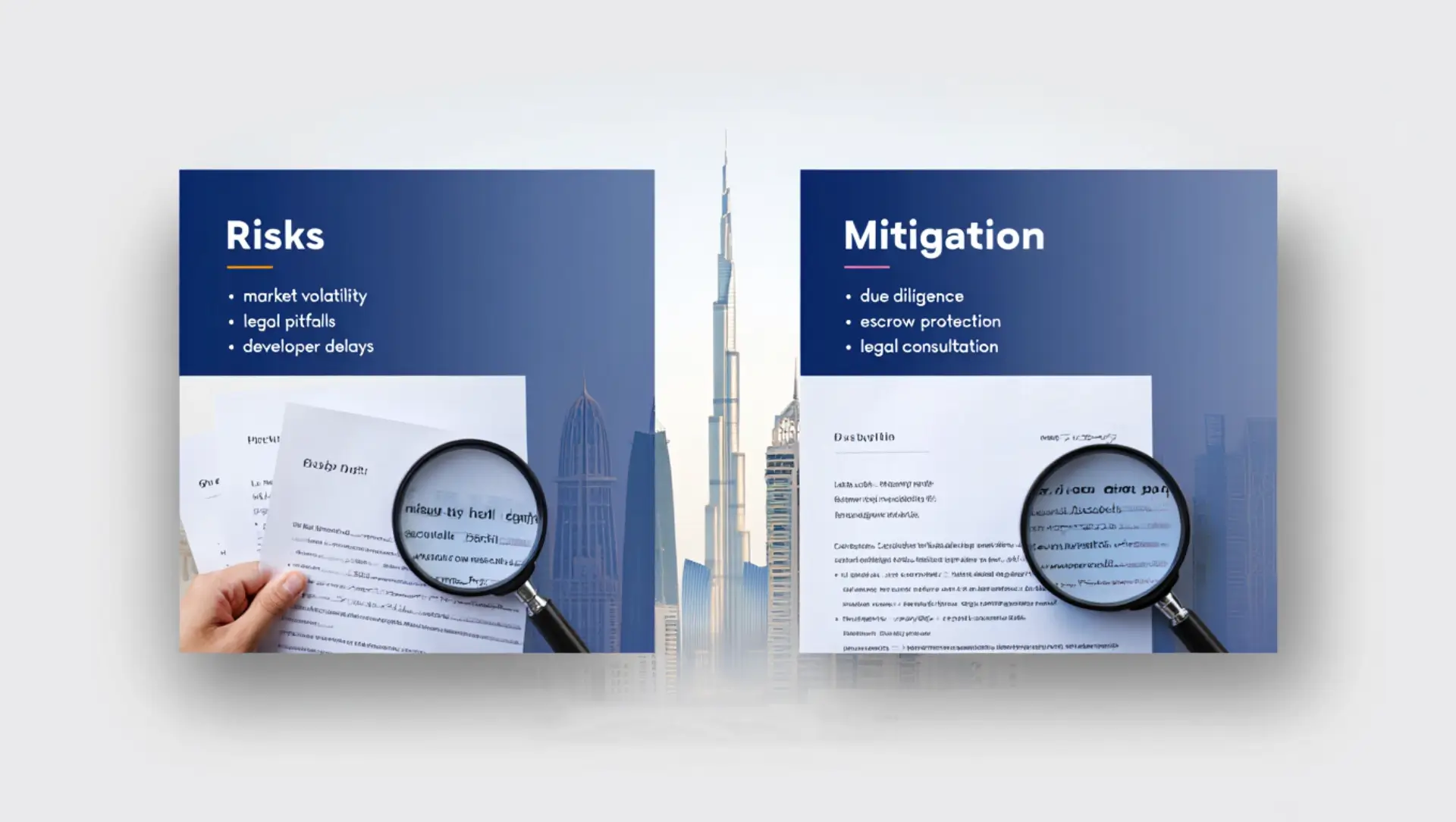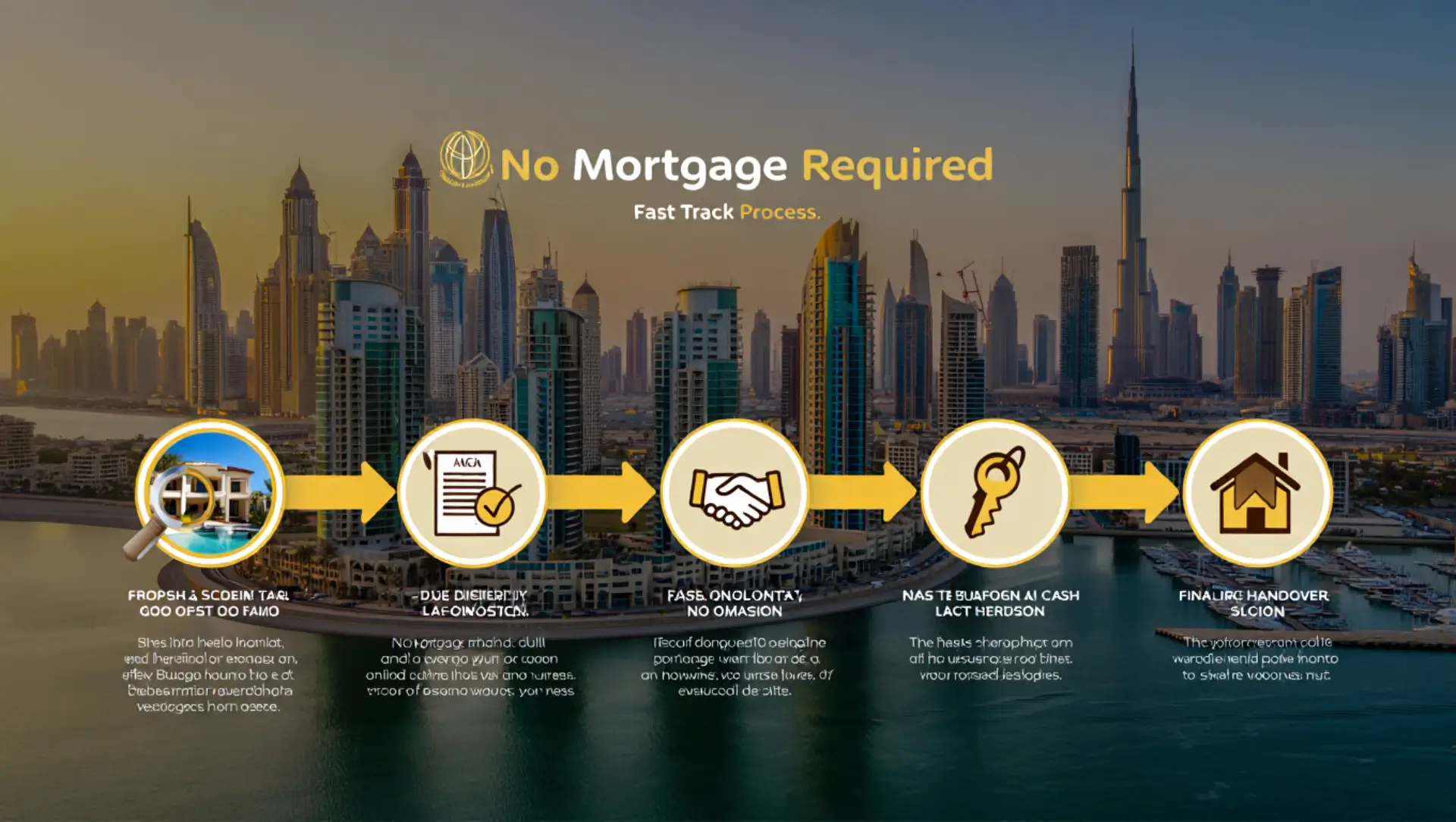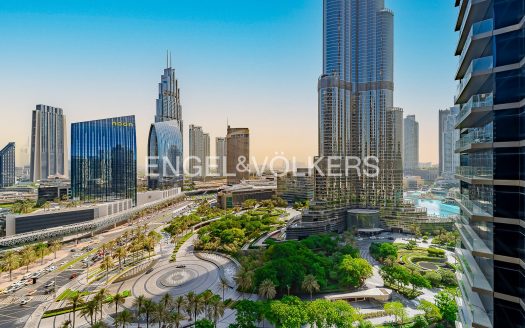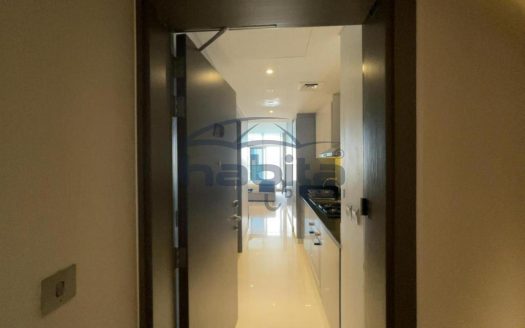The Complete Cash Buyer’s Roadmap: How to Navigate Dubai’s Property Market Without Financing Headaches
Last Updated on August 27, 2025

Picture this scenario: you’ve finally accumulated enough capital to make a serious property investment, but every conversation with mortgage brokers turns into a bureaucratic nightmare. Mountains of paperwork, credit checks, income verification letters, and months of uncertainty. Meanwhile, apartments in Dubai continue climbing in value while you’re stuck in approval limbo. Sound familiar? This frustration drives countless investors toward cash purchases, yet many stumble into costly mistakes because they don’t understand the unique dynamics of Dubai’s property landscape.
The challenge isn’t simply about having money in the bank. Rather, it’s about deploying that capital wisely while sidestepping the regulatory traps, hidden expenses, and timing disasters that catch unprepared buyers off guard. Too many investors approach Dubai property purchases with assumptions based on their home market experiences, only to discover that the Emirates operate under entirely different rules.
What follows is a deep dive into the five questions that keep potential buyers awake at night: whether foreigners can legally purchase property with cash, how cash compares to mortgage financing, what risks lurk beneath the surface, the real cost of acquisition, and how long the entire process actually takes. Instead of generic advice, this analysis examines actual market data and regulatory frameworks to transform confusion into clarity.
Legal Framework and Foreign Ownership Rights
Dubai’s approach to foreign property ownership might surprise those familiar with restrictive markets elsewhere. The legal foundation, which has evolved significantly since the early 2000s, actually encourages international investment through straightforward cash transactions. Many countries complicate foreign ownership with residency requirements or ownership caps, but Dubai chose a different path entirely.
The framework operates through designated freehold zones where non-UAE nationals enjoy complete ownership rights. These aren’t tiny parcels of land tucked away in remote corners – we’re talking about prime real estate in Downtown Dubai, Dubai Marina, Palm Jumeirah, and Business Bay. What’s particularly interesting is how cash buyers navigate this system more smoothly than their mortgage-dependent counterparts.
Think about it from a regulatory perspective. When someone applies for a mortgage, multiple institutions must coordinate approvals: the bank, the developer, various government departments, and insurance providers. Each entity adds layers of documentation and verification. Cash buyers, on the other hand, deal primarily with the Dubai Land Department’s registration process. Fewer moving parts mean fewer opportunities for delays or complications.
The Real Estate Regulatory Agency oversees developer activities through mandatory escrow accounts and project registration requirements. This oversight benefits cash buyers who can leverage immediate purchasing power during negotiations. Developers often prefer cash deals because they guarantee faster closings and eliminate financing contingencies that might derail transactions.
Recent legal changes have expanded opportunities beyond traditional freehold areas through renewable 99-year leases. These developments open emerging neighborhoods to international buyers at lower entry points, though understanding the distinction between freehold and leasehold ownership becomes crucial for long-term planning. The legal framework continues evolving to attract international capital, making Dubai increasingly accessible to foreign investors.
Financial Analysis: Cash Purchase Versus Mortgage Financing
Here’s where conventional financial wisdom starts breaking down. Most investment advice suggests leveraging cheap credit whenever possible, but Dubai’s market dynamics create situations where cash purchases actually deliver superior returns. The mathematics become quite compelling when you examine the complete picture rather than just interest rate comparisons.
Cash buyers routinely negotiate 3-8% purchase price discounts, an advantage that frequently exceeds annual mortgage costs. This negotiating power intensifies during market corrections or when developers face project completion deadlines. During recent market fluctuations, cash buyers reported securing discounts averaging 12% compared to list prices, while mortgage buyers rarely achieved reductions exceeding 3%.
| Transaction Type | Average Discount Achieved | Additional Costs | Net Advantage |
| Cash Purchase | 5-12% | Minimal | 5-12% savings |
| Mortgage (UAE Resident) | 0-3% | 2-4% of loan value | Net cost 2-7% |
| Mortgage (Non-Resident) | 0-3% | 3-6% of loan value | Net cost 5-10% |
The hidden costs of mortgage financing extend well beyond interest payments. Bank arrangement fees typically consume 1% of the loan amount, property valuations cost AED 2,500-3,500 plus VAT, and mandatory insurance requirements add ongoing expenses. When calculated over typical 15-25 year mortgage terms, these additional costs often reach 15-20% of the purchase price.
Liquidity concerns represent the primary argument against cash purchases, yet Dubai’s developers have innovated solutions that address this challenge. Post-handover payment plans allow buyers to pay 80% during construction and 20% upon completion, enabling cash buyers to maintain liquidity while securing pre-construction pricing advantages.
Currency considerations add another layer of complexity for international buyers. The UAE dirham’s peg to the US dollar eliminates exchange rate volatility for American investors, creating predictable transaction costs. European and Asian buyers must factor potential currency movements into their calculations, though these fluctuations can sometimes create unexpected opportunities. Brexit-related sterling weakness, for instance, effectively reduced property costs by 15-25% for UK investors during certain periods.
The rental yield potential also favors cash buyers who can begin generating income immediately upon property completion. Mortgage holders must service debt obligations before realizing positive cash flow, while cash buyers enjoy full rental income from day one. In current market conditions, this advantage can mean the difference between positive and negative monthly cash flows.
Risk Assessment and Mitigation Strategies

Every property investment carries risks, but Dubai’s market presents unique challenges that demand specific mitigation strategies. Cash buyers face different risk profiles than mortgage holders, particularly regarding market timing and developer selection. Understanding these risks enables better decision-making rather than paralyzing potential investors.
Market volatility remains the most significant systematic risk in Dubai’s property sector. Values declined approximately 30% between 2014-2018 according to Property Monitor data, before recovering 25% through 2024. However, cash buyers demonstrated superior resilience during this cycle. Without mortgage obligations forcing distressed sales, cash buyers could time their exits strategically and even acquire additional properties at discounted prices.
Developer risk requires careful evaluation, especially for off-plan purchases that dominate Dubai’s primary market. The escrow account system provides legal protection, but buyers must verify compliance and understand system limitations. Established developers like Emaar Properties, founded in 1997 with significant government backing, maintain strong delivery records but command premium pricing. Newer developers may offer better value propositions but require enhanced due diligence regarding financial stability and project execution capabilities.
Smart risk mitigation involves diversification across development stages and geographic areas rather than seeking mythical “risk-free” investments. Experienced cash buyers typically allocate 60% toward ready properties in established neighborhoods, 30% to near-completion projects from proven developers, and 10% to speculative off-plan purchases in emerging areas. This strategy balances immediate rental income with capital appreciation potential while limiting exposure to construction delays.
Legal title verification demands professional review beyond basic developer warranties. The Dubai Land Department maintains online verification systems, but comprehensive due diligence should include mortgage encumbrance checks, NOC status verification, and community fee obligation reviews. These verification processes typically cost AED 2,000-5,000 but can prevent expensive post-purchase discoveries.
Currency risk affects international buyers differently depending on their base currency and investment timeline. Hedging strategies through forward contracts or currency options can provide protection against adverse movements, though these instruments add complexity and cost to transactions.
Comprehensive Cost Structure Analysis
Property acquisition costs in Dubai extend significantly beyond advertised purchase prices, with additional expenses typically ranging from 6-10% of property values. These costs vary based on transaction structure, buyer circumstances, and property characteristics. Accurate budgeting prevents cash flow surprises that can derail purchases at critical moments.
The Dubai Land Department transfer fee represents the largest mandatory expense at 4% of registered property value. This fee applies regardless of financing method, though cash buyers sometimes negotiate this cost into purchase price discussions. The calculation uses the higher of purchase price or official valuation, making accurate property assessment crucial for budget planning.
Real estate agent commissions, while negotiable, typically consume 1-3% depending on property type and market conditions. Luxury properties and off-plan purchases often carry higher commission rates, while secondary market transactions may offer more flexible fee structures. Some cash buyers work directly with developers to eliminate agent costs, though this approach requires greater market knowledge and legal expertise.
Hidden ongoing costs frequently surprise new property owners, particularly service charges and community fees ranging from AED 8-25 per square foot annually. These charges cover maintenance, security, and amenities but vary dramatically between developments. Palm Jumeirah properties typically incur service charges of AED 15-20 per square foot, while newer Dubai South developments may charge AED 8-12 per square foot with fewer amenities.
Utility connections and municipality approvals create additional cash requirements that vary by property type and location. Villa purchases may require AED 10,000-25,000 for utility connections and landscaping deposits, while apartment purchases involve lower connection fees but may include mandatory chiller connections costing AED 2,000-8,000 annually.
Insurance requirements, while not legally mandatory for cash buyers, provide essential protection against property damage and liability claims. Annual premiums typically range from 0.1-0.3% of property value, with higher rates for older buildings or properties in flood-prone areas.
Transaction Timeline and Process Optimization

Cash property purchases in Dubai can complete remarkably quickly when properly managed – often within 2-4 weeks compared to 6-12 weeks for mortgage transactions. However, this efficiency depends entirely on preparation and understanding the sequential requirements governing property transfers.
Property selection and preliminary agreement typically require 2-5 business days for cash buyers versus 2-3 weeks for mortgage applicants requiring pre-approval. Cash buyers can make immediate offers and secure reservations with token payments of AED 10,000-50,000 depending on property value. This speed advantage becomes crucial in competitive markets where desirable properties receive multiple offers quickly.
Documentation preparation often consumes the most time for international buyers, particularly those requiring document authentication from home countries. Passport copies, visa documentation, and Emirates ID for residents must be prepared alongside proof of funds statements from recognized banking institutions. The Central Bank of the UAE maintains specific requirements for fund source documentation that buyers must satisfy, typically requiring 6-month bank statements and wealth source declarations for transactions exceeding AED 1 million.
The formal purchase agreement phase involves Sales Purchase Agreement execution and No Objection Certificate applications. Cash buyers typically complete SPA signing within 24-48 hours of offer acceptance, while NOC processing requires 3-7 business days depending on developer efficiency. Established developers like Nakheel Properties, founded in 2000 as master developer of Palm Jumeirah and The World Islands, usually process NOCs more rapidly than smaller developers lacking dedicated administrative teams.
Final transfer completion occurs at Dubai Land Department offices requiring physical presence or authorized representation. The transfer process takes 2-4 hours but needs advance appointment scheduling that may add 1-2 weeks during peak periods. Cash buyers should prepare manager’s cheques for all fees and remaining purchase amounts, as the DLD doesn’t accept cash payments or personal cheques.
Market timing can significantly impact both pricing and process efficiency. First and third quarters typically represent the most active periods with maximum property availability but highest competition. Second and fourth quarters often provide better negotiation opportunities as developers focus on quarterly sales targets and may offer enhanced incentives for immediate cash purchases.
Success in Dubai’s cash property market requires comprehensive preparation, professional guidance, and realistic expectations. The potential rewards – both financial and lifestyle – continue attracting sophisticated international capital to Dubai’s dynamic real estate sector. Cash buyers who understand the system’s nuances position themselves to capitalize on opportunities while avoiding the pitfalls that trap unprepared investors.





